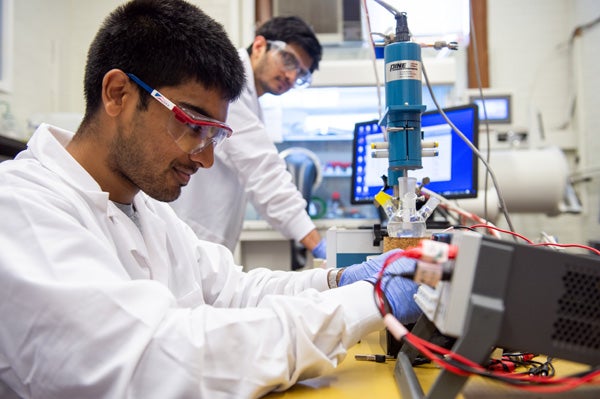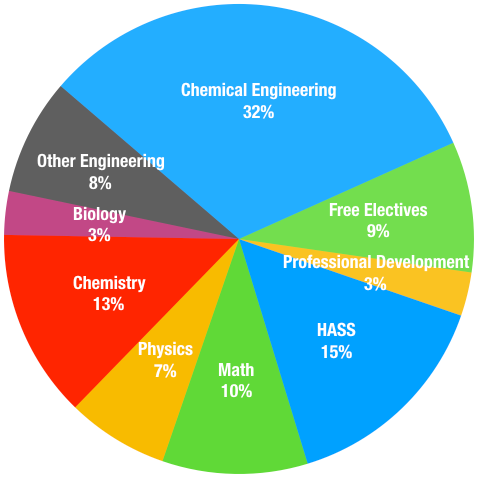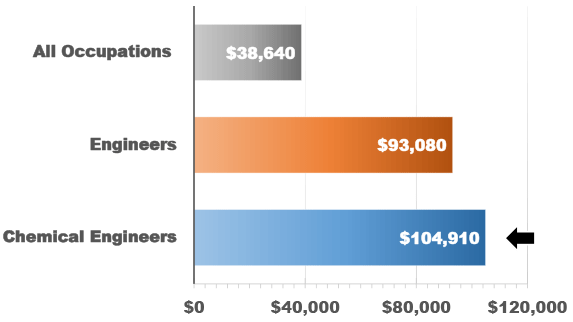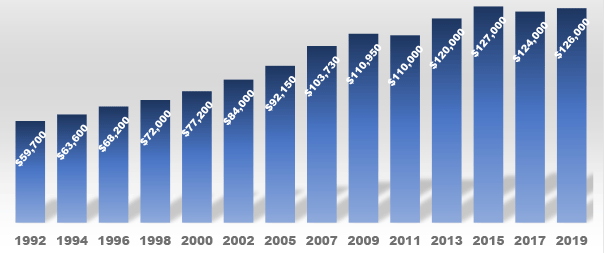
Coordinator of Undergraduate Studies: Nihat Baysal
The Chemical Engineering Program
The Chemical Engineering program at Rensselaer is accredited by the Engineering Accreditation Commission of ABET, under the commission’s General Criteria and Program Criteria for Chemical, Biochemical, Biomolecular, and Similarly Named Engineering Programs.
The Howard P. Isermann Department of Chemical and Biological Engineering prepares students to enter their engineering practice dealing with chemical as well as physical processes to meet the challenges of the future. The curriculum, which builds on chemistry, biology, mathematics, basic sciences, and engineering science, culminates in professional applications in which theory is tempered by engineering art and economic principles. Through this curriculum, Chemical Engineering graduates are uniquely prepared to address some of societies most pressing problems including: climate change, energy security, sustainable resources, and healthcare.
Opportunities for creative and satisfying practice in chemical and biological engineering can be found in conception, design, control, or management of processes involving chemical and/or biochemical transformations. These processes range from the more conventional conversion of crude oil into petrochemicals and plastics, to the microbiological transformation of hardwood chips into specialty alcohols, or to the creation of semiconductor devices from silicon wafers. Diverse career choices exist not only in the chemical industry, but in virtually all processing industries, including agricultural, biotechnology, chemical, food, nuclear, semiconductor processing, and environmental operations. By emphasizing basic principles, the program prepares its graduates for positions spanning the spectrum of activities from research and development, to process and project engineering, to production, or to technical marketing.
The chemical engineering program comprises a minimum of 39 courses, which include three free electives and three area electives: one in advanced chemistry, one in advanced chemical engineering, and one in a nonchemical engineering area. On completion of three years of the baccalaureate program, the student may continue to the fourth year or be admitted to the professional program. While individual variations may be made in the course sequence in consultation with a faculty adviser, all listed courses and elective credits in the curricula must be satisfactorily completed to qualify for the specified degrees. The complete curriculum totals 131 credit hours.
For details regarding course requirements please consult the course catalog and the website for The Arch.
Classes Towards Chemical Engineering Degree
Chemical Engineers - Median Annual Wages*
Median Salary of Chemical Engineers*
1992 - 2019
“Chemical engineers continue to earn more than the average U.S. worker. The median salary of survey respondents is $126,000 — 1.6% higher than the median reported in 2017.” - AiCHE Survey Analysis
Co-terminal BS/ME Degree Program
Co-Terminal Program: Co-Terminal BS/ME program is open only to current Rensselaer undergraduates. It is an honors program in chemical engineering intended to provide top students with the opportunity to apply for admission to the master's program at the end of the junior year and complete both the BS and ME degrees with one additional year of study. Co-terminal ME students are required to maintain a minimum GPA of 3.0 in advanced courses used towards their graduate degree. This program is not intended for students wishing to pursue a PhD degree, but does not exclude them should they wish to pursue it. However, the department recommends that those students apply directly to a PhD program at RPI or elsewhere.
The minimum eligibility requirements to be considered for admission into the program are listed below. Meeting these requirements does not guarantee admission and the final decision for admission rests with the graduate admissions committee in the department:
Eligibility requirements:
- Two letters of recommendation
- Statement of purpose and goals (1-2 pages), indicating the applicant's reasons for pursuing the Co-Terminal program and preparations and qualifications for graduate work
- A minimum average GPA of 3.5 in four core chemical engineering undergraduate courses: CHME 2010 (Material, Energy, and Entropy Balances); CHME 2020 (Energy, Entropy, and Equilibrium); CHME 4010 (Transport Phenomena I); and CHME 4030 (Chemical Process Dynamics and Control)




